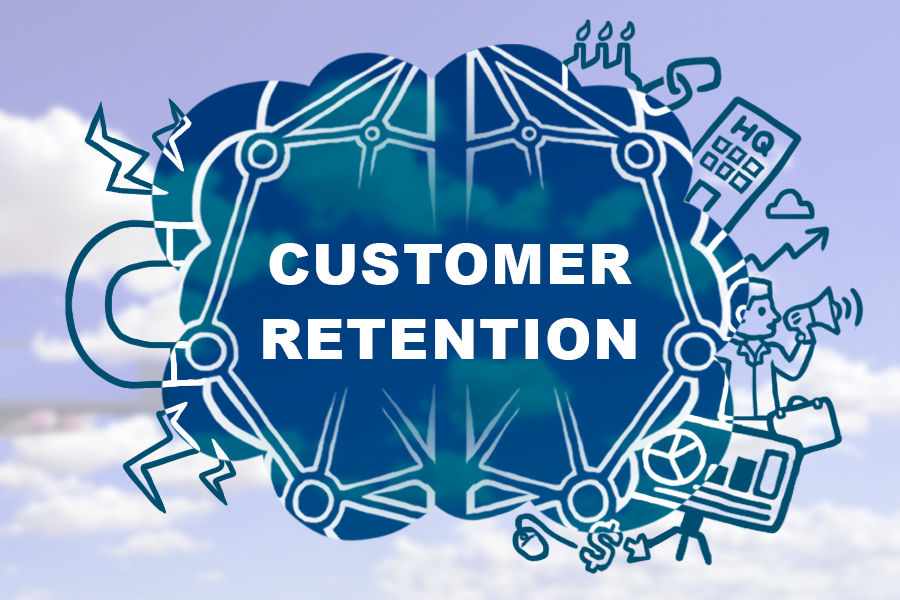INTRODUCTION:

Every successful business starts as a small, ambitious startup with a big idea. But transitioning from a startup to a scalable, sustainable business—also known as the “scale-up” phase—presents a unique set of challenges and opportunities. Entrepreneurs and business leaders must navigate this critical growth stage carefully, ensuring that the right strategies are in place to support continued expansion without losing sight of the vision that sparked the company’s creation. This article delves into the essential strategies for unlocking the growth formula for a sustainable and successful scale-up journey.
1. Refine Your Business Model and Value Proposition:
The first step in scaling a startup is refining the business model. At the startup phase, businesses often pivot multiple times as they seek the perfect product-market fit. By the time you're ready to scale, the product or service should already be validated, and the business model needs to be solidified to support larger-scale operations.
Refining your value proposition is also crucial. A strong value proposition clearly articulates what makes your business unique and why customers should choose you over competitors. As you scale, you must ensure that this value proposition resonates with a broader audience and stays relevant. A clear and compelling value proposition can act as the foundation for customer acquisition, marketing efforts, and brand development.
Key takeaway: Ensure your business model is scalable, and refine your value proposition to align with the larger target market.
2. Secure the Right Funding for Growth:
Scaling a business requires investment—whether it’s for expanding operations, increasing production capacity, hiring new talent, or entering new markets. Therefore, securing funding becomes one of the most critical aspects of the scale-up process.
At this stage, businesses may look for venture capital (VC) funding, private equity, or debt financing, depending on the industry and financial health of the startup. It's essential to have a clear business plan and a well-defined growth strategy to present to potential investors. Be prepared to articulate the opportunity for growth, how the business intends to use the funds, and the potential for ROI.
Moreover, the funding process often involves more than just acquiring capital; it’s about building relationships with investors who share the same vision for the company’s future. These investors can also bring valuable expertise, connections, and strategic guidance.
Key takeaway: Funding is a critical enabler of growth—ensure you have a clear plan for attracting investment and using it effectively.
3. Scale Your Operations Efficiently:
As a business grows, operational efficiency becomes a key focus. The systems, processes, and infrastructure that worked well in the startup phase may no longer be sufficient when it comes to scaling. A scale-up needs to optimize its operations to handle increased demand, streamline workflows, and minimize bottlenecks.

Investing in scalable systems—such as customer relationship management (CRM) tools, enterprise resource planning (ERP) systems, and automation software—can dramatically improve efficiency. Additionally, consider outsourcing non-core activities to third-party vendors or suppliers to free up internal resources for high-priority tasks.
It's also essential to streamline your supply chain and distribution channels to ensure that you can deliver products or services quickly and cost-effectively to a larger customer base.
Key takeaway: Invest in systems, technology, and partnerships that allow you to scale your operations efficiently while maintaining quality.
4. Build and Strengthen Your Team:
Scaling requires more than just operational efficiency; it demands the right talent. Your team will play a pivotal role in driving the business forward, so it’s essential to hire individuals who are aligned with your company’s mission and who can take on increasing responsibilities as the business expands.
When scaling, look for team members who are not just skilled but also adaptable and forward-thinking. Building a strong leadership team that can help steer the company through challenges and opportunities is also crucial. This may include hiring experienced managers or executives with experience in scaling businesses or bringing in external advisors for strategic input.
As the team grows, it’s essential to maintain a culture of innovation, collaboration, and accountability. Invest in leadership development and training programs to ensure that all team members are equipped to handle the demands of the scale-up phase.
Key takeaway: Building a strong, capable team is essential for sustaining growth and ensuring long-term success.
5. Focus on Customer Acquisition and Retention:
To scale successfully, businesses must grow their customer base. Attracting new customers while retaining existing ones is a balancing act that requires targeted marketing, strong customer service, and a robust sales strategy.
In the early stages, startups often rely on word-of-mouth and organic growth. However, as you scale, it’s necessary to implement a more formal customer acquisition strategy. This could involve digital marketing campaigns, partnerships, or expanding your sales team to focus on lead generation and conversions.

At the same time, customer retention should be a priority. It’s often less expensive to retain existing customers than to acquire new ones. Consider implementing loyalty programs, offering personalized services, or seeking feedback to continuously improve the customer experience. A strong, loyal customer base will help ensure the sustainability of your business.
Key takeaway: Effective customer acquisition and retention strategies are key drivers of sustainable growth during the scale-up phase.
6. Expand Into New Markets:
Once your business has established a solid foundation, it’s time to consider expanding into new markets. This could mean geographic expansion, targeting new customer segments, or diversifying your product line.
Entering new markets requires a deep understanding of the local landscape, including customer preferences, competition, and regulatory requirements. Research is key to assessing the viability of expansion into a particular market. Strategic partnerships with local businesses or distributors can help smooth the entry process and reduce risks.
Whether you're expanding regionally, nationally, or globally, market diversification can be a powerful growth strategy that enables you to tap into new revenue streams.
Key takeaway: Market expansion opens up new opportunities for growth but requires thorough research and strategic planning.
7. Maintain a Long-Term Vision and Adaptability:
While the focus during the scale-up phase is often on rapid growth, it’s essential for business leaders to maintain a long-term vision. Scaling too quickly without the right infrastructure can lead to significant challenges, including cash flow issues and employee burnout.
Being adaptable to changing market conditions, customer needs, and emerging technologies is equally important. Stay attuned to trends in your industry and remain flexible enough to pivot when necessary. Sustainable success is about making strategic decisions that align with both immediate growth goals and long-term objectives.
Key takeaway: Balancing rapid growth with long-term strategic planning and adaptability ensures the business can scale sustainably.
Conclusion: Unlocking the Growth Formula.
Scaling a business from startup to scale-up is a challenging yet rewarding journey. The key to success lies in refining your business model, securing the right funding, optimizing operations, building the right team, and implementing effective customer acquisition strategies.
By focusing on these foundational elements and maintaining a long-term vision, businesses can unlock the growth formula that ensures sustainable success. The scale-up phase offers an exciting opportunity to expand your impact and market share—when done strategically, it positions the business for success in an increasingly competitive marketplace.


You must be logged in to post a comment.